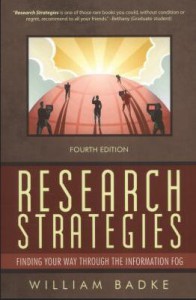Today we discussed access with some reference to the Martin article and to the case of Aaron Swartz’s activism, described in the Samuelson article (and many other places). Slides from today are available here.
On Wednesday 10/9 we’ll discuss metadata: information about information; taxonomies and folksonomies.
Please read the following: Badke ch. 4; Dye, Folksonomy: A Game of High-Tech (and High-Stakes) Tag; Harrod, Flickr: The World’s Photo Album
Your blogging assignment is one comment of at least 100 words on a classmate’s blog post, or 2 comments totaling 100 words on 2 different blog posts.
Questions about the research topic proposal draft, due 10/16? Refer to the guidelines, review slides of class discussions, and get in touch with your questions! I’m glad to discuss over email, by appointment, or during my office hours, Monday and Wednesday immediately after class.
~Prof. Leonard



